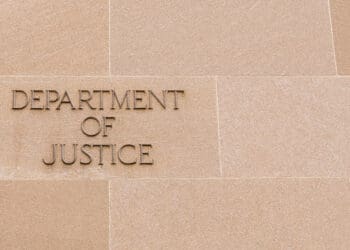Jay Rosen, “Mr. Monitor,” continues a series on suspension and debarment, discussing where these actions meet with FCPA enforcement.
Debarment may be based on actions so serious or compelling that it affects the present responsibility of the contractor or subcontractor. There is some fairly broad language as to what the basis for a suspension and debarment can be. This means that in the context of anti-corruption laws, it can be the basis of a suspension or debarment.
Under the FCPA, the conduct to incur a violation does not require actual bribery or corruption.
It can be bad recordkeeping associated with or the context of engagements with foreign officials – activity that would generally fall outside the realm of a public contract or subcontract. From the suspension and debarment perspective, it is critical to recognize here that the standard definition for contractor issues from the rule does not require that the entity actually have a contract in place.
In the context of suspension and debarment, they may have a contract or compete at some point for a contract to become a contractor – essentially any business activity that provides goods or services the federal government may be interested in acquiring potentially could fall within the definition of “contract.”
When one considers the FCPA, practically any business would fall within the definition of “contractor.”
These sanctions are not limited to contractors with existing contracts, and they are not limited to misconduct occurring in the context of a federal contract. My colleagues at Affiliated Monitors have dealt with several matters involving FCPA violations – activity that was clearly outside the scope of a federal contract or subcontract, but where the conduct was committed by very large federal contractors.
Another angle to the convergence of FCPA and suspension and debarment was raised by two authors, then South Texas College of Law student Nicholas J. Wagoner and Professor Drury D. Stevenson in a piece titled “FCPA Sanctions: Too Big to Debar?”, in which they posited the question:
“Are certain private contractors too big to debar?” Their conclusion: “It appears so.”
The authors stated, “The federal government is too dependent on a particular set of large, private-sector corporations for equipment and services.”
In addition to the virtual immunity from debarment enjoyed by these firms when they violate the FCPA, the fines imposed for engaging in foreign corrupt practices comprise a tiny fraction of the potential revenue generated by lucrative contracts with the U.S. and foreign states. When discounted by the low probability of detection, these sanctions are far too low to deter unlawful activity.
One solution for the issues regarding fines and penalties for FCPA violators is debarment and suspension. They urge that debarment would be a significant deterrent for U.S. government contractors and would “increase compliance with the FCPA.”
The authors also suggest that the threat of debarment as a penalty would increase self-disclosure without any increased enforcement efforts if companies received the “meaningful reward” of a lesser penalty through self-disclosure.
A wide variety of conduct can form the basis of a suspension or debarment. It can be any fraud or criminal offense in the context of obtaining, attempting to attain or forming a public contract or subcontract within the scope of antitrust statutes or violations, whether federal or state embezzlement, theft forgery, ossification or destruction of records, false statements or tax evasion, violating basically any federal law.
The concept of present responsibility is not defined anywhere on the regulatory structure; it is left to the discretion of the agency suspending or debarring and, in most cases, that official is going to look back at it. The basic question asked will be “is there a reason to be concerned about the integrity of that contractor?”
And that gets us into a fairly deep dive of the ethics and compliance program.
In case you missed the earlier installments of this ongoing series, please see the links below.
Everything You Always Wanted to Know About Monitors But Were Afraid to Ask
Part 1, Part 2, Part 3, Part 4 and Part 5
Potential Issues in Corporate Monitorships
Part 1, Part 2, Part 3, Part 4 and Part 5




![FCPA Enforcement Is Changing; What Does It Mean for Compliance Programs? [Q&A]](https://www.corporatecomplianceinsights.com/wp-content/uploads/2025/02/doj-sign-on-building-350x250.jpg)







